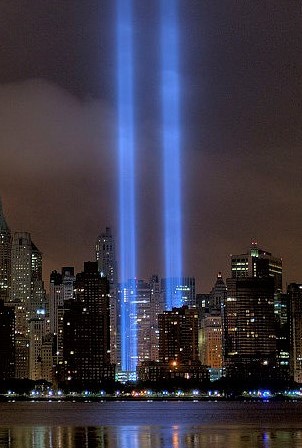Authors:
Historic Era:
Historic Theme:
Subject:
November/December 2001 | Volume 52, Issue 8


Authors:
Historic Era:
Historic Theme:
Subject:
November/December 2001 | Volume 52, Issue 8

September 11, 2001. A new date to remember, unlike any other in our history. The last significant attack on the mainland United States by an outside enemy occurred in the War of 1812, almost two centuries ago. The only American death tolls that compare with those in New York came during the Civil War, and now the number who died in Manhattan alone—leaving aside the deaths in Washington and Pennsylvania—may exceed the 6,000 killed at the Battle of Antietam, which was previously the most deadly day in American history.
Even those in the midst of the disaster were caught unawares by the singularity of the event. A young trader trapped in the World Trade Center telephoned his father, a retired fireman, to ask what he should do to escape the flames; the reply was “Go to the roof.” Fire is a danger we know from centuries of experience. But who could recall a skyscraper of more than 100 stories crumbling to the ground? “This is not possible,” a stunned witness said as the building sank in a cloud of dust; nothing in our past prepared us for the possibility.
Outside attacks have always brought Americans together. Pearl Harbor immediately comes to mind, but the British assault at Lexington, Massachusetts, on April 19, 1775, is another example. John Hancock was terrified as he fled the battle scene and began a long trip to Philadelphia, where the Second Continental Congress would have its first session on the tenth of May. He feared that the other colonies would blame Massachusetts for starting an unwelcome war and leave it to face British reprisals alone. But as the news spread through the country “on the wings of the wind"—taking only days to reach New York—colonists along the Massachusetts delegates’ route came out to express their sympathy and support.
Finally, after receiving an unprecedented reception in New York, Hancock and his colleagues entered Philadelphia in what can only be called a triumphal procession with “bells all ringing, and the air rent with Shouts and huzza’s.” Never before, Virginia’s Richard Henry Lee reported, had there been “more perfect unanimity among any sett of Men than among the Delegates,” and “all the old Provinces not one excepted are directed by the same firmness of union, and determination to resist by all ways and to every extremity.” The Second Continental Congress soon became, for all practical purposes, the first government of the United States. Americans joined arms and became a nation in the wake of an outside attack. Good of an unpredictable sort can come out of evil.
Events assume historical importance not only by their consequences but for what they reveal about the time and place at